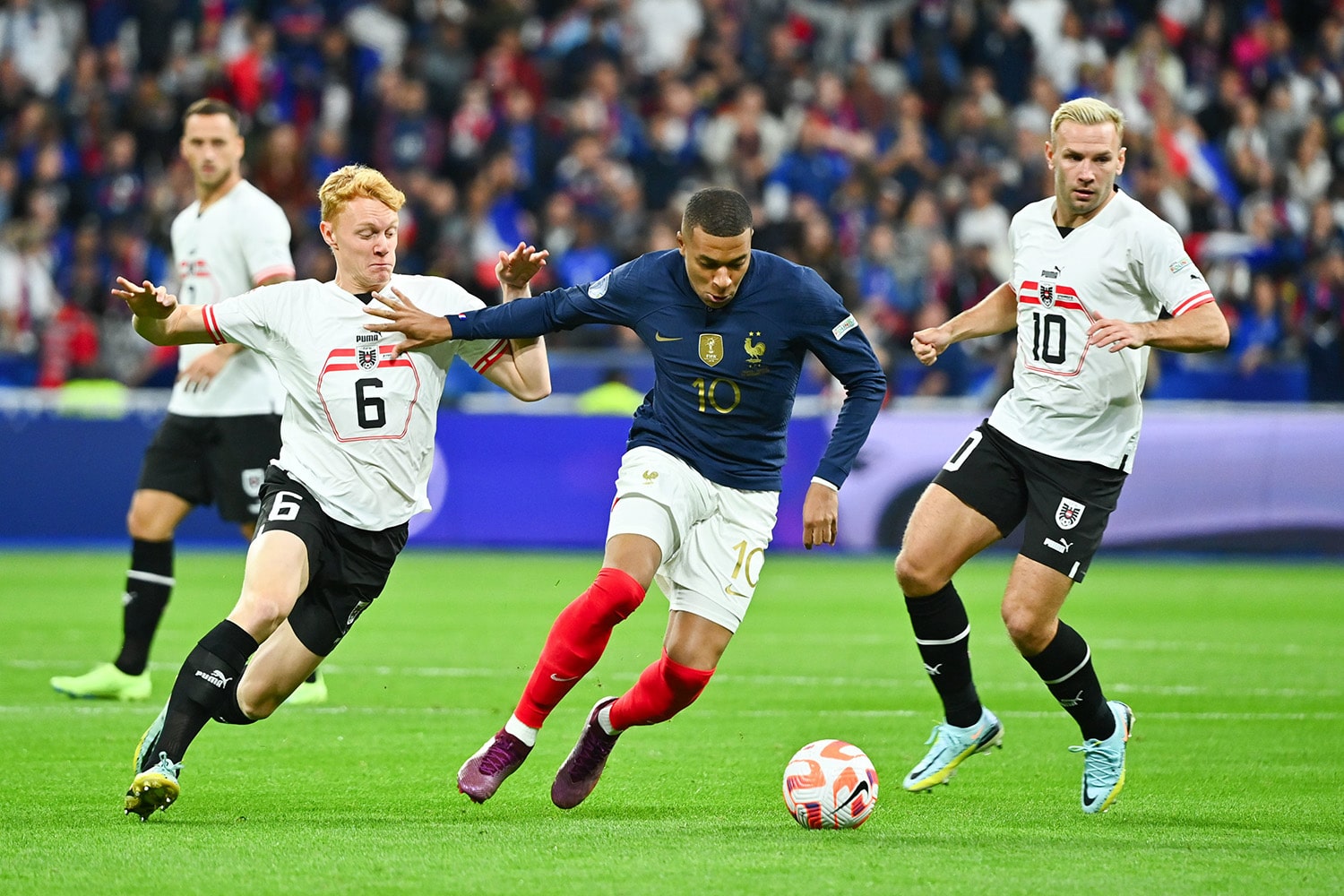
The Breeding Grounds of Brilliance: Football Clubs with the Best Youth Academies
In the glittering, high-stakes world of professional football, where transfer fees soar into hundreds of millions and instant success is often demanded, there remains a vital, often undervalued, bedrock: the youth academy. These institutions are more than just training facilities; they are crucibles where raw talent is forged into elite professionals, embodying a club’s philosophy, ensuring its financial sustainability, and preserving its very identity. A thriving youth academy is a testament to a club’s long-term vision, its commitment to development, and its belief in its own footballing DNA.
This article delves into the esteemed ranks of football clubs renowned for their exceptional youth academies, exploring what makes them successful, the philosophies that guide them, and the prodigious talents they have unleashed upon the world stage.
What Defines an Elite Youth Academy?
Before we highlight specific clubs, it’s essential to understand the multifaceted criteria that elevate a youth academy to world-class status:
- Talent Identification: The ability to spot potential, often years before it blossoms, is paramount. This requires extensive scouting networks, both locally and internationally, and a keen eye for physical, technical, and psychological attributes.
- Coaching Philosophy & Methodology: A consistent, coherent coaching philosophy that permeates all age groups is crucial. This includes technical skill development, tactical understanding, physical conditioning, and mental resilience. The best academies often have a distinct "style of play" they instill from a young age.
- Pathway to the First Team: Young players need to see a realistic route to the senior squad. Clubs that genuinely integrate academy graduates into their first team, rather than constantly buying established stars, foster a sense of hope and purpose among their youth.
- Holistic Development: Beyond football skills, elite academies focus on the player as a person. Education, life skills, psychological support, and character building are integral to ensuring well-rounded individuals, whether they make it professionally or not.
- Infrastructure & Facilities: State-of-the-art training pitches, gyms, medical facilities, classrooms, and accommodation create an optimal environment for growth and learning.
- Financial Investment & Return: While academies are an investment, the best ones often yield significant financial returns through player sales, even if the players don’t make it to their own first team, or by producing home-grown stars who save on transfer fees.
The Titans of Talent Production
1. FC Barcelona (La Masia)
Perhaps the most famous youth academy in the world, La Masia is synonymous with a specific, beautiful style of football: "Tiki-Taka." Barcelona’s philosophy is deeply ingrained from the youngest age groups, emphasizing technical superiority, quick passing, positional interchange, and tactical intelligence. Players are taught to understand the game, not just play it.
Key Graduates: Lionel Messi, Xavi Hernández, Andrés Iniesta, Sergio Busquets, Carles Puyol, Gerard Piqué, Pep Guardiola, Gavi, Pedri (though not fully La Masia, they quickly absorbed the philosophy).
Unique Selling Point: A unified playing philosophy across all age groups, leading to seamless transitions to the first team. The emphasis on positional play and decision-making over pure physicality sets them apart.
2. AFC Ajax (De Toekomst)
Ajax’s "De Toekomst" (The Future) academy in the Netherlands has been a consistent conveyor belt of talent for decades, deeply rooted in Rinus Michels’ and Johan Cruyff’s "Total Football" philosophy. The academy focuses on individual technical excellence, tactical flexibility, and intelligent movement. Players are encouraged to master multiple positions, making them versatile and adaptable.
Key Graduates: Johan Cruyff, Marco van Basten, Dennis Bergkamp, Frank Rijkaard, Clarence Seedorf, Edgar Davids, Wesley Sneijder, Matthijs de Ligt, Frenkie de Jong, Ryan Gravenberch.
Unique Selling Point: The emphasis on multi-positional training and the development of highly intelligent, technically gifted players who understand the nuances of the game. Their ability to consistently produce talent despite being a selling club is remarkable.
3. Sporting Clube de Portugal (Academia Cristiano Ronaldo)
Sporting Lisbon’s academy, now officially named after its most famous alumnus, Academia Cristiano Ronaldo, has an incredible track record of developing world-class individual talents. Located in Alcochete, it focuses on honing technical skills, athleticism, and mental fortitude. Unlike some academies that prioritize a collective style, Sporting often excels at nurturing prodigious individual flair.
Key Graduates: Cristiano Ronaldo, Luís Figo, Ricardo Quaresma, Nani, João Moutinho, William Carvalho, Rafael Leão, Gonçalo Inácio.
Unique Selling Point: A consistent ability to produce players with exceptional individual technique, dribbling ability, and physical prowess, often becoming stars in attacking or midfield roles.
4. SL Benfica (Caixa Futebol Campus)
Benfica’s academy, the Caixa Futebol Campus, located in Seixal, has emerged as one of Europe’s most prolific talent factories in recent years, renowned for its sheer volume and commercial success in player sales. They combine a strong emphasis on technical skills with modern sports science, ensuring players are physically robust and tactically astute.
Key Graduates: Bernardo Silva, João Félix, Rúben Dias, Renato Sanches, Gonçalo Ramos, João Cancelo, André Gomes.
Unique Selling Point: A highly efficient and commercially successful model that churns out a large volume of talented players across various positions, many of whom move to top European clubs for significant fees.
5. Manchester United (The Cliff/Carrington)
Manchester United’s youth system has a storied history, most famously producing the "Class of ’92." While their academy facilities have evolved from The Cliff to the state-of-the-art Carrington complex, the emphasis on developing well-rounded individuals with strong character and a winning mentality remains. They pride themselves on fostering a connection between the players and the club’s history and values.
Key Graduates: The "Class of ’92" (David Beckham, Ryan Giggs, Paul Scholes, Gary Neville, Phil Neville, Nicky Butt), Marcus Rashford, Mason Greenwood, Scott McTominay, Alejandro Garnacho.
Unique Selling Point: A rich history of promoting youth, particularly through periods of success, and instilling a strong work ethic and club loyalty.
6. Southampton FC
Often dubbed "The Saints Way," Southampton’s academy has quietly established itself as one of the most effective in England. Despite not being a perennial top-tier club, their focus on player development, particularly in full-back and wide attacking roles, has been exceptional. They have a clear pathway for young players and are adept at selling their products for substantial profits.
Key Graduates: Gareth Bale, Theo Walcott, Alex Oxlade-Chamberlain, Luke Shaw, James Ward-Prowse, Adam Lallana.
Unique Selling Point: An outstanding track record of producing Premier League and international quality players, often for clubs with larger resources, demonstrating a shrewd and effective development model.
7. Arsenal FC (Hale End)
Arsenal’s Hale End Academy has undergone significant rejuvenation in recent years, focusing on developing technically proficient, intelligent, and versatile players. Under the guidance of Per Mertesacker, the academy emphasizes a modern, fluid attacking style and holistic development, preparing players not just for Arsenal but for the demands of top-flight football.
Key Graduates: Bukayo Saka, Emile Smith Rowe, Jack Wilshere, Cesc Fàbregas (joined young), Eddie Nketiah, Reiss Nelson.
Unique Selling Point: A renewed focus on creating a clear pathway to the first team, coupled with an emphasis on developing players with high footballing IQ and adaptability to various tactical systems.
Other Notable Academies:
- Real Madrid (La Fábrica): While often overshadowed by "Galáctico" signings, La Fábrica consistently produces top talent, many of whom have successful careers elsewhere if not at Real Madrid itself (e.g., Dani Carvajal, Nacho, Álvaro Morata, Achraf Hakimi, Marcos Llorente).
- Bayern Munich (FC Bayern Campus): With significant recent investment, Bayern’s academy is a powerhouse for developing German talent, ensuring a steady supply of players who understand the club’s winning mentality (e.g., Thomas Müller, David Alaba, Toni Kroos, Jamal Musiala).
- Olympique Lyonnais (OL Academy): A consistent producer of French talent, Lyon’s academy has a strong track record of developing players who become key figures in Ligue 1 and beyond (e.g., Karim Benzema, Alexandre Lacazette, Samuel Umtiti, Nabil Fekir, Houssem Aouar).
- River Plate / Boca Juniors (Argentina) & Santos / Flamengo (Brazil): While often less structured than European academies due to different financial realities, these South American giants are relentless talent factories, constantly unearthing and developing future stars who eventually move to Europe (e.g., Enzo Fernández, Julián Álvarez from River Plate; Neymar, Rodrygo from Santos).
The Enduring Impact and Future of Youth Academies
The importance of youth academies in modern football cannot be overstated. They are crucial for:
- Financial Sustainability: Producing players reduces reliance on the volatile transfer market and generates significant income through sales.
- Club Identity and Fan Connection: Home-grown players often embody the club’s values and create a stronger bond with the fanbase.
- Maintaining a Competitive Edge: A steady stream of talented, well-trained players ensures long-term competitiveness.
However, academies also face challenges: the pressure for instant results, the global competition for talent, and the temptation to poach young players. Yet, as the financial stakes in football continue to rise, the strategic investment in youth development becomes not just an option, but a necessity for clubs aspiring to sustainable success.
In conclusion, the world’s best youth academies are more than just talent pipelines; they are sophisticated ecosystems dedicated to nurturing potential. They are the unsung heroes of football, quietly shaping the future of the beautiful game, one young prodigy at a time. Their enduring legacy is not just the trophies won, but the countless dreams realized and the continuous replenishment of football’s most vital resource: human talent.


